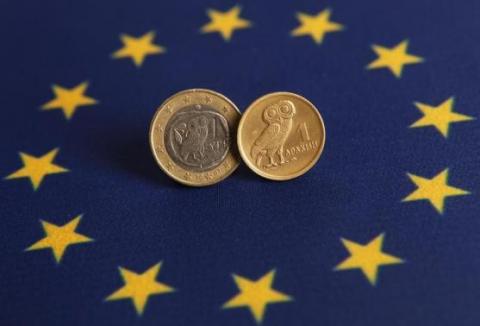'Grexit' is back: A Greek exit from the euro raises fears of fiscal contagion

By Simon Kennedy
Mario Draghi?s July 2012 pledge to do ?whatever it takes? to keep the euro intact has kept speculators at bay for almost three years. Bond yields fell from Dublin to Athens, giving governments room to cut budgets and start revamping their economies.
While it?s not been a period of robust growth, the talk of crisis has abated and even Greece?s six-year recession ended.
What?s not changed is the risk entailed by Greece?s potential departure from the 19-nation currency bloc. What Citigroup Inc.?s Ebrahim Rahbari termed ?Grexit? is back in play and it remains the worst possible outcome in the view of economists at Berenberg Bank and ING-DiBa AG.
Leaving the euro would make Greece a pariah in international markets, enforce a devaluation that probably would require capital controls and make banks fresh targets. The economy would probably contract again and the government would be pushed off the deleveraging and deregulatory policies that euro membership demands and which, while painful, have begun to bear some fruit.
To Holger Schmieding of Berenberg, such a backdrop would leave Greece as ?Venezuela without oil,? a nod to the Latin America nation already skidding toward default.
After Greece, speculators would immediately size up the next potential victim -- from Cyprus to Spain and on to Italy.
Elections Coming
While Europe?s policy defenses and vulnerable economies are now stronger, chances are of a rerun of the contagion of 2011 and 2012 when Portugal, Cyprus, Spain and Ireland all got bailouts. Elections are nearing in Portugal and Spain, while France and Italy are struggling to overhaul their economies.
?It would be a nasty precedent if Greece leaves as it could stimulate others to do the...
- Log in to post comments










